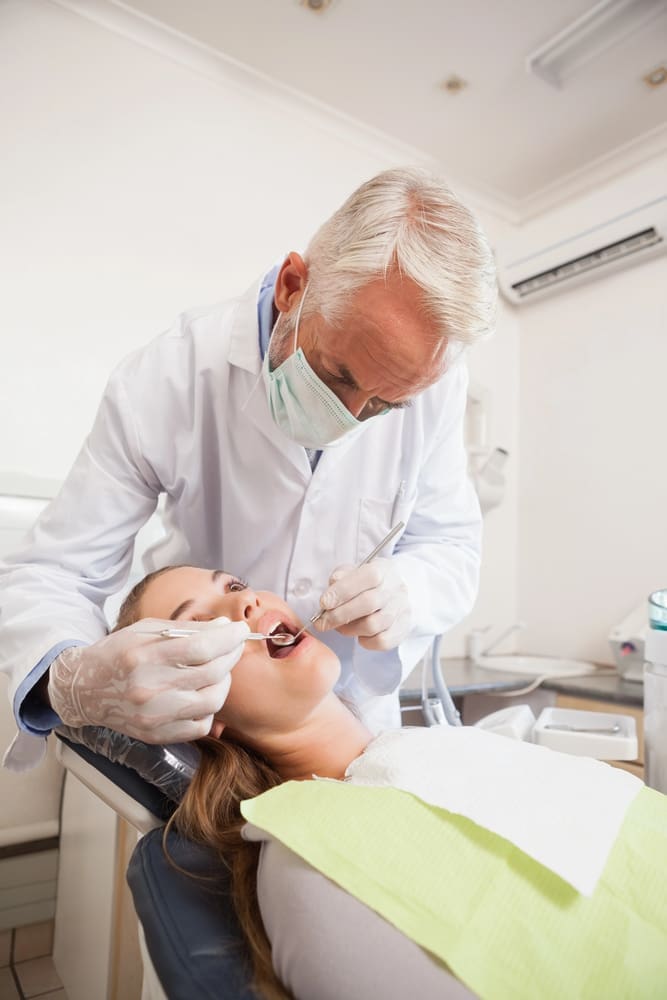Are you curious about the potential porcelain veneer risks before undergoing the procedure? Understanding porcelain veneer risks is crucial, as it involves considerations like tooth sensitivity and the irreversible nature of the treatment.
Porcelain Veneer Risks: Daily Oral Hygiene Practices
Understanding porcelain veneer risks involves recognizing the importance of maintaining daily oral hygiene practices. Proper oral care is essential to ensure the longevity and appearance of your veneers. Neglecting your oral hygiene can lead to complications such as gum disease or decay, which can compromise the integrity of your veneers. Regular brushing and flossing are crucial to prevent plaque buildup and maintain the health of your natural teeth and gums.
In addition to daily oral hygiene, it’s important to be aware of the potential costs associated with maintaining your veneers. For more information on budgeting for your veneers, you can read our detailed guide on Porcelain Veneers Cost: What to Expect and How to Budget for Your Perfect Smile. By staying informed about porcelain veneer risks and committing to a consistent oral care routine, you can help ensure that your veneers remain in excellent condition for years to come.
Avoiding Staining Foods and Drinks
One of the significant porcelain veneer risks is the potential for staining, which can affect the appearance of your veneers over time. While porcelain veneers are designed to be stain-resistant, they are not entirely impervious to discoloration. Consuming certain foods and drinks, such as coffee, tea, red wine, and berries, can contribute to staining. It’s essential to be mindful of your diet to maintain the pristine look of your veneers.
Understanding these porcelain veneer risks is crucial for anyone considering this cosmetic dental procedure. By being aware of the potential for staining, you can take steps to preserve the longevity and aesthetic appeal of your veneers. For more information on maintaining your veneers, visit our Porcelain Veneers Services Anchorage page.
Regular Dental Checkups
Understanding porcelain veneer risks involves recognizing the importance of regular dental checkups. These routine visits to your dentist play a crucial role in monitoring the health and longevity of your veneers. Regular dental checkups can help identify any potential issues early on, ensuring that your veneers remain in optimal condition and reducing the likelihood of complications. By staying proactive with your dental health, you can better manage the risks associated with porcelain veneers and maintain a beautiful, healthy smile.
Proper Brushing Techniques
Understanding the importance of proper brushing techniques is crucial when considering porcelain veneer risks. Maintaining good oral hygiene can significantly impact the longevity and appearance of your veneers. It’s essential to use gentle, consistent brushing motions to avoid damaging the delicate porcelain surface. Regular brushing helps prevent plaque buildup and ensures that your veneers remain in optimal condition. For more information on maintaining your dental health, visit Huffman Family Dentistry, your trusted Anchorage Dentist.
Flossing with Care
One of the often-overlooked porcelain veneer risks is the potential for damage during daily oral hygiene routines, particularly flossing. While porcelain veneers are durable, they can be susceptible to chipping or dislodging if not handled with care. It’s crucial to use a gentle technique and avoid snapping the floss down onto the gum line. Instead, slide the floss up and down carefully along the sides of each tooth. Additionally, consider using a water flosser as an alternative to traditional flossing methods. By flossing with care, you can help maintain the integrity of your veneers and ensure a long-lasting, beautiful smile.
Using Non-Abrasive Toothpaste
One of the often-overlooked porcelain veneer risks is the potential for damage caused by abrasive toothpaste. Using non-abrasive toothpaste is crucial to maintaining the integrity and longevity of your veneers. Abrasive toothpaste can scratch the surface of the veneers, leading to a dull appearance and even compromising their structural integrity over time. To mitigate this risk, opt for toothpaste specifically designed for veneers or those labeled as non-abrasive. This simple switch can help you preserve the aesthetic appeal and functionality of your porcelain veneers, ensuring that your investment remains protected for years to come.
Protecting Veneers from Damage
Understanding porcelain veneer risks is crucial for maintaining your new smile. One of the primary concerns is protecting veneers from damage. While porcelain veneers are durable, they are not indestructible. To minimize the risk of chipping or cracking, avoid biting into hard foods like ice or nuts, and refrain from using your teeth as tools to open packages. Additionally, if you grind your teeth at night, consider wearing a night guard to prevent undue stress on your veneers. Regular dental check-ups and proper oral hygiene are also essential in ensuring the longevity of your veneers and mitigating potential risks.
Managing Teeth Grinding
One of the significant porcelain veneer risks that patients need to be aware of is the impact of teeth grinding, also known as bruxism. Teeth grinding can exert excessive pressure on veneers, leading to potential damage or even dislodgement. To mitigate this risk, it’s crucial to address bruxism before undergoing a veneer procedure. Dentists often recommend wearing a custom-fitted night guard to protect your veneers from the harmful effects of grinding while you sleep. Additionally, stress management techniques and regular dental check-ups can help in managing this condition effectively, ensuring the longevity and durability of your porcelain veneers.
Choosing the Right Mouthwash
Selecting the appropriate mouthwash is crucial for maintaining the longevity of your veneers and minimizing porcelain veneer risks. Opt for an alcohol-free mouthwash to prevent the drying out of your gums and the potential weakening of the bond between your veneers and natural teeth. Additionally, fluoride-based mouthwashes can help strengthen your enamel and protect against cavities, which is essential for the overall health of your mouth. Always consult with your dentist to ensure that the mouthwash you choose is compatible with your specific dental needs and won’t compromise the integrity of your porcelain veneers.
Conclusion
Understanding porcelain veneer risks is crucial before making any decisions. For more information, call 907-345-7722 or read reviews on Google Maps.

